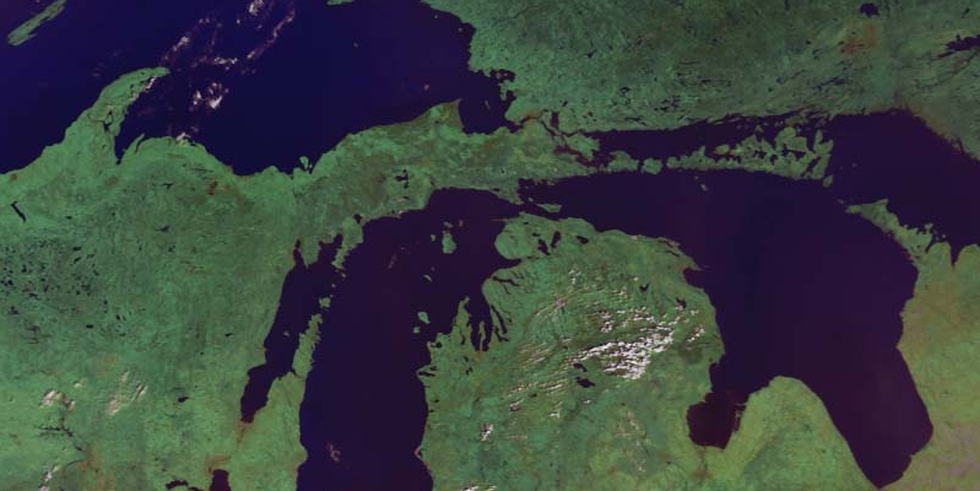
Up North Progressive
Politics and commentary for Northern MichiganThe State of Michigan Water 2020: Nestle Enbridge and now Michigan Potash LLC
Wednesday , 22, January 2020 Enbridge Line 5, Environment, Flint Water, Michigan Potash LLC, Michigan Water, Nestlé Leave a comment
2020 is a big year for the state of Michigan’s water. Nestlé Waters looks forward to pumping 400 gallons of fresh water out of Osceola County every minute. Enbridge makes plans to begin building their tunnel under the Straits of Mackinac. PFA testing and cleanup continue across the state. It couldn’t possibly get worse. In Osceola County, a geologist from Colorado wants to pump 1200 gallons of water every minute to extract potash, endangering groundwater and vulnerable wetlands. This is the year he might get started.
Since 2013, Ted Pagano struggled to become a Michigan potash tycoon after seeing core mineral samples at Western Michigan University. Around the same time, Mosaic ceased extracting potash from the ground in Evart, Michigan. Mosaic closed shop because the bottom fell out of the world potash market in 2013, and the market has not recovered.
The three main potash producers globally are Russia, Belarus, and Canada. Russian and Belarusian potash producers controlled the potash price through their cartel until 2013, when the cartel fell apart over fighting between the two countries’ potash producers. The potash price has made sluggish gains since then but nowhere near the cartel-controlled price levels of 2013. Despite the abandoned building and rusting equipment of Mosaic Salt littering the landscape outside Evart, Pagano insists that 65 Billion dollars of a mineral that’s already in surplus worldwide will bring jobs and prosperity to the northwest lower peninsula. Like Nestle Waters, GEO Group, Chesapeake Energy, and every other billion-dollar corporation trying to exploit this region of the state starved for jobs and revenue has claimed and failed.
The sluggish market isn’t the only problem with Pagano’s potash fever dream. How will Michigan Potash transport minerals? The railroad that once ran through this area pulled up tracks decades ago. Will Pagano tear up our crumbling roads hauling potash with trucks? Transporting the potash is the least of many concerns Pagano’s vague plans will have on the region’s water and wildlife.
Lawsuits from groups like Michigan Citizens for Water Conservation struggle to make it through Michigan’s courts. The next time MCWC can file briefs fighting Michigan Potash is March 20, 2020. A November hearing with the Michigan Department of Environment, Great Lakes, and Energy (Formerly MDEQ) left the issue undecided. Earlier in 2019, a judge refused to rule on the case claiming the court had no jurisdiction.
However, the next environmental threat to Michigan’s water doesn’t come from extracting potash from the ground but from what happens with the waste and how Michigan Potash LLC disposes of it.


Greetings, friend! I love comments and read every one of them.